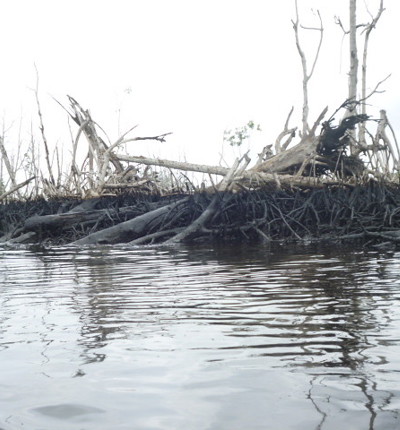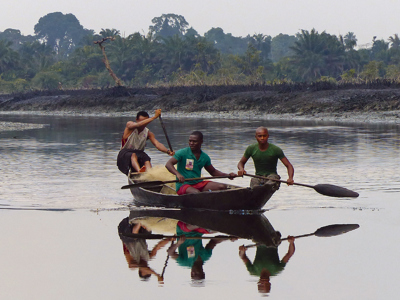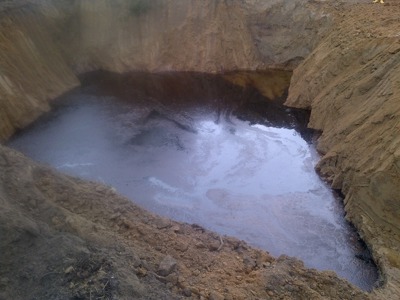
‘Selling out Nigeria’ – SOMO’s investigation of Shell’s divestment in the Niger Delta
Partner, Matthew Renshaw and Alice Grist from Leigh Day’s international department examine concerns that Shell’s plans to sell off its Nigerian oil business could result in it leaving the Niger Delta without addressing years of chronic oil pollution in the region.
Posted on 06 March 2024
In January 2024, Shell plc announced that it would be selling its Nigerian onshore subsidiary, Shell Petroleum Development Company (‘SPDC’), to Renaissance Africa Energy Company, a consortium of five buyers.
This decision could have dire consequences for those living with the historic pollution still emanating from SPDC’s oil infrastructure in the Niger Delta.
SOMO (Centre for Research on Multinational Corporations)’s report, Selling out Nigeria – Shell’s irresponsible divestment (‘SOMO’s report’ or ‘the report’), published on 28 February 2024, exposes the detrimental ramifications of Shell plc’s divestment of SPDC for the Niger Delta.
Widespread oil pollution – what does the sale of SPDC mean for clean-up?
The Niger Delta has sustained chronic and widespread pollution from SPDC’s oil infrastructure for decades – it is one of the most polluted places on earth. Now Shell seeks to leave the Niger Delta without cleaning up and remediating the local land and waterways of its oil pollution. SOMO says Shell cannot be permitted to divest from the oil industry in the Niger Delta without taking responsibility for its contamination of the environment which has stripped millions of people of their lives and livelihoods.
SOMO’s report notes that although Shell acknowledges SPDC’s responsibility to clean up and remediate oil spills occurring from its infrastructure, SPDC will no longer be connected to Shell after the sale. Local communities, who live side-by-side with SPDC’s oil infrastructure and operations, are concerned about the oil giant leaving without remediating the environment. An SPDC owned by Renaissance might not have the resources to fulfil its clean-up and remediation obligations.
Shell relies on NOSDRA (the Nigerian National Oil Spill Detection and Response Agency) for their clean-up certification. However, SOMO found that NOSDRA has insufficient resources and is overly influenced by Shell, meaning that it has certified the clean-up of Shell’s oil spill sites where independent evidence shows that oil contamination persists. In addition to this conflict of interest, SOMO found that laboratories used for sampling and testing of the contaminated water and soil often fall short of international standards.
As Shell’s sale of SPDC is a sale of shares, the Nigerian subsidiary is left intact. This means that SPDC (as owned by Renaissance) will retain its assets and liabilities. However, Shell plc will no longer be accountable for SPDC’s deteriorating and leaky oil infrastructure. The new SPDC will be owned by Renaissance, and if Renaissance does not have the funds to maintain SPDC’s oil infrastructure or if SPDC becomes insolvent, communities may be left with no remedy.
Decommissioning
SOMO says that the oil giant cannot be allowed to leave the Niger Delta without properly decommissioning the deteriorating and abandoned oil infrastructure that it is leaving behind. If pipelines, wellheads, and manifolds are not appropriately decommissioned, this infrastructure will fall apart and leak, thereby impacting the lives and environment of those who live nearby. The report notes a ‘transparency gap’ around funding for decommissioning because it is unclear how much (if any) Shell has set aside to decommission the oil mining leases (OMLs) it has sold since 2010. SOMO found that Shell has divested to newly created companies which do not seem able or willing to deal with this. For example, Shell was not required to provide funding for decommissioning as part of its sale of the Nembe Creek Trunkline (‘NCTL’), which spans 97km, to Nigerian oil company Aiteo in 2015. The NCTL is deteriorating, and poses serious risks to communities who live along the pipeline, such as the Bille community which Leigh Day is representing in a legal action against Shell plc and SPDC. The Nigerian government also does not have the resources to fund decommissioning of this extensive oil infrastructure, so communities are concerned that no one will be left to pay, and the infrastructure will continue to crumble.
‘Maze of investors’
Shell submits that in selecting potential buyers, it assesses the companies’ finances, operating culture, and health, safety, security, and environment policies. However, SOMO found that Shell has sold its OMLs to new companies whose backgrounds and investment structures are complex and unclear. SOMO’s report exposes Shell’s practice of selling its OMLs to special purpose vehicles – companies solely created to enable investment and limit financial risk. Many of these companies also have no background in the dangerous industry that is oil extraction. The risk is that these companies will not have the resources or expertise to deal with the oil pollution and decommissioning issues.
Conclusion
How Shell exits the region will serve as a precedent for how the other US and European oil majors do so as well. SOMO questions in its report that if Shell is allowed to perform ‘the ultimate corporate escape act’, and leave without properly cleaning up or decommissioning, then the other oil giants may follow in its lead. Shell is facing legal claims brought by the Bille and Ogale communities for compensation and clean-up of historic oil spills, and by the Bodo community for failing to properly clean up pollution resulting from half a million barrels of oil spilled over ten years ago. It is therefore critical to consider how ‘just’ the just energy transition away from fossil fuels is if communities in the Global South are left to suffer the impact of the age of fossil fuels, while companies in the Global North reap the profits.

High Court rejects Shell's attempts to block Nigerian community’s legal claim over major oil spill clean-up
The High Court has today rejected an attempt by Shell to strike out a legal claim over its clean-up operation after two massive oil spills that severely polluted the Bodo community’s land in southern Nigeria in 2008.

High Court rules Nigerian communities can bring landmark human rights claims against Shell for oil pollution
The High Court has ruled that 13,000 Nigerian fishermen and farmers at the centre of a major oil pollution case against Shell can bring claims for breaches of their right to a clean environment under Nigerian constitutional law. If the case succeeds at trial, it will be the first time in legal history that a UK multinational will have been found to have breached a communities’ right to a clean environment.


